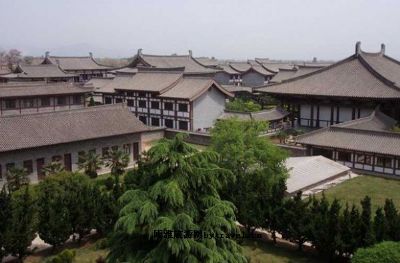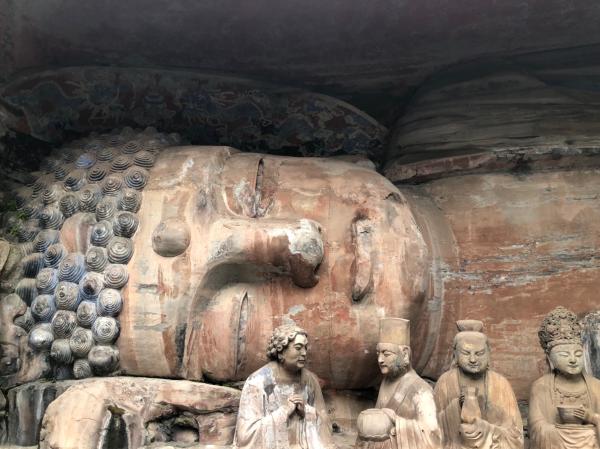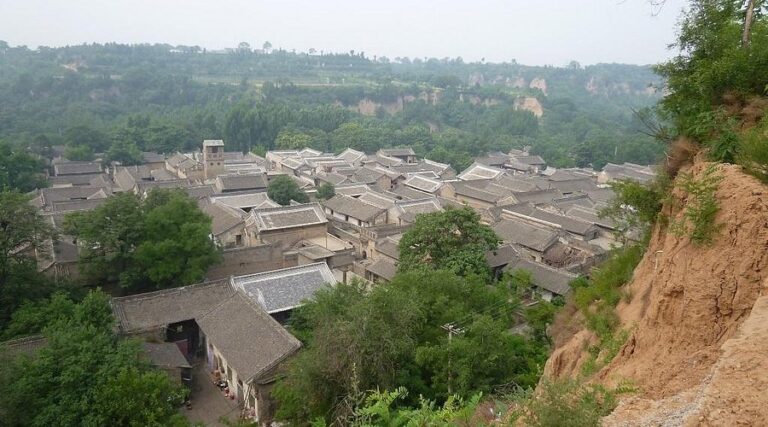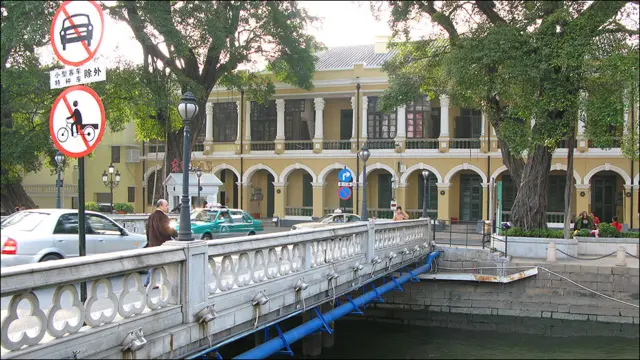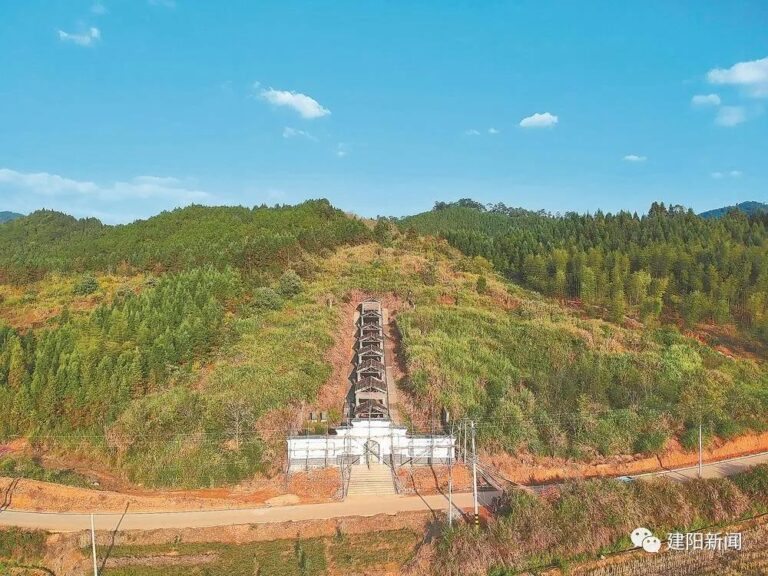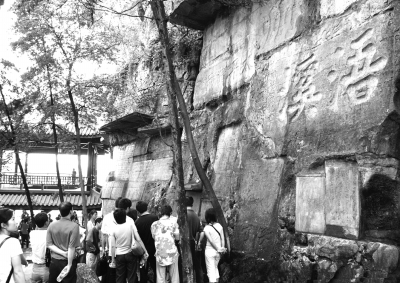Yuncheng Yuban Ancient Salt Road: A Pathway to Ancient Traditions and Scenic Beauty
An Essential Guide to Visiting Yuncheng Yuban Ancient Salt Road
In This Guide
- An Essential Guide to Visiting Yuncheng Yuban Ancient Salt Road
- The Rich History of Yuncheng Yuban Ancient Salt Road
- Main Highlights: What to See at Yuncheng Yuban Ancient Salt Road
- Planning Your Visit: A Practical Guide
- Tickets, Hours, and Booking
- How to Get There
- Local Cuisine and Accommodation
- Frequently Asked Questions
- Final Thoughts on Your Trip
Nestled in the heart of Shanxi Province, the Yuncheng Yuban Ancient Salt Road stands as a testament to the ingenuity and resilience of ancient Chinese civilization. This historical route, dating back to the early Western Zhou Dynasty, served as a vital artery for salt transportation, linking the renowned Yuncheng Salt Lake—one of the world’s largest inland salt lakes—to the broader expanse of Central China. The salt road, known for its challenging terrain and stunning landscapes, not only facilitated the movement of goods but also played a crucial role in shaping the region’s economy and culture.
As you explore this ancient pathway, you’ll be captivated by the natural beauty that surrounds it. The road winds through the majestic Zhongtiao Mountains, where lush greenery and vibrant flora juxtapose the rugged cliffs and rocky outcrops. Along the way, remnants of history whisper tales of salt merchants and laborers who once traversed these routes, their footsteps etched deep into the stone, marking their passage through time.
The Yuban Salt Road is not merely a relic of the past; it is a living narrative of the salt trade that thrived for millennia. With over 4,600 years of salt production history, Yuncheng has earned its title as “Salt City,” a place where the heritage of salt mining continues to influence local culture, economy, and environmental practices. Today, the ancient road is being revitalized, blending heritage preservation with eco-tourism, allowing visitors to step into the pages of history while experiencing the breathtaking landscapes of this unique region.
Whether you are a history enthusiast, a nature lover, or simply seeking an off-the-beaten-path adventure, the Yuncheng Yuban Ancient Salt Road offers a remarkable journey through time, revealing the profound connection between nature, culture, and the enduring legacy of salt in shaping human civilization.
The Rich History of Yuncheng Yuban Ancient Salt Road
The Yuncheng Yuban Ancient Salt Road, known as 虞坂古盐道, is a remarkable historical route that dates back to the early Western Zhou Dynasty (approximately the 11th century BCE). This ancient road, carved into the rugged terrain of the Zhongtiao Mountains, served as a vital artery for the transportation of salt from the Yuncheng Salt Lake, one of the world’s largest sodium sulfate salt lakes. The significance of this route extends beyond its physical presence; it embodies the rich salt culture and the economic development of the region.
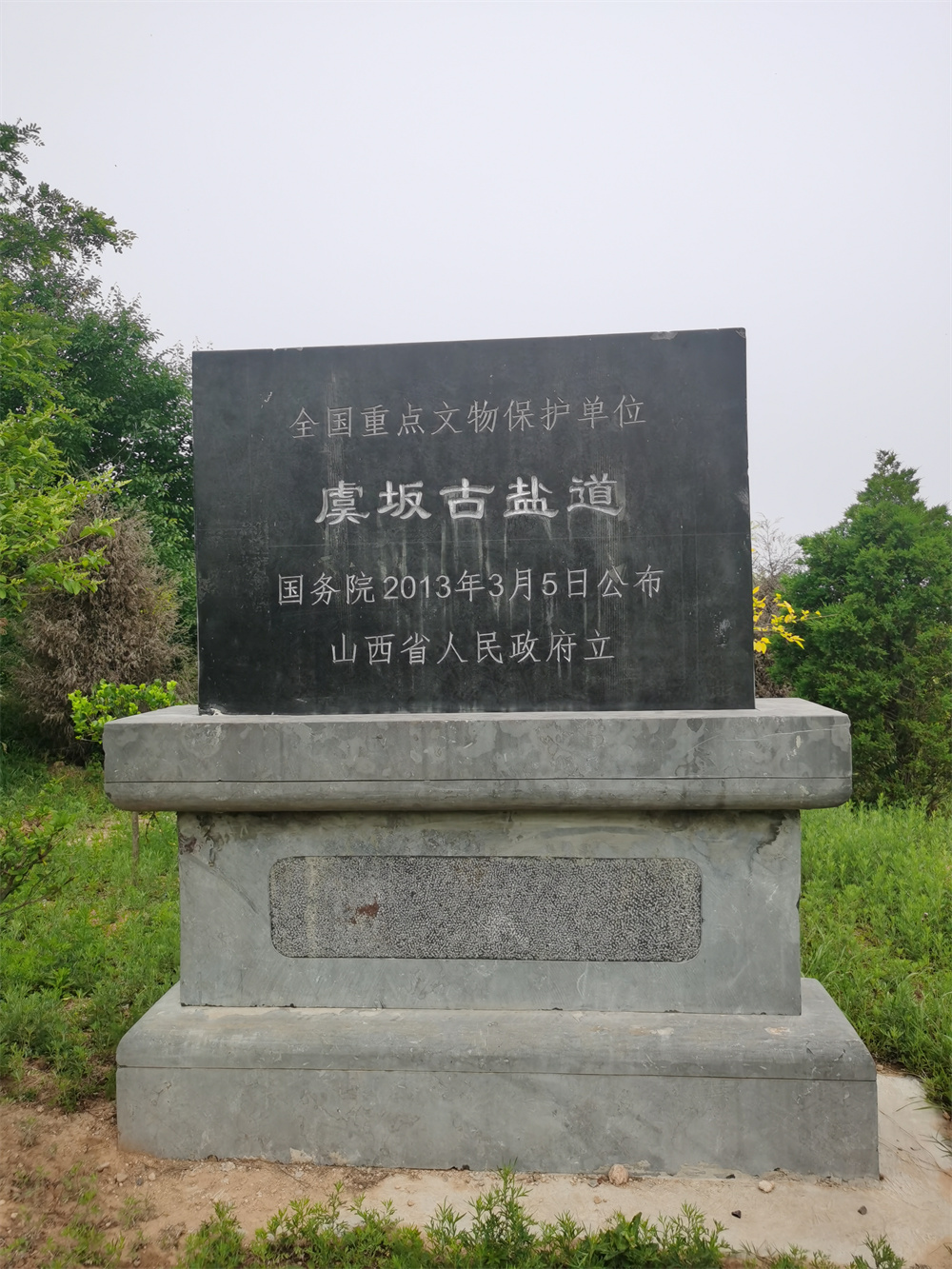
Yuncheng Yuban Ancient Salt Road.
The history of salt extraction in Yuncheng can be traced back over 4,600 years, making it one of the oldest salt production sites in China. The Yuncheng Salt Lake, historically known as the Hedong Salt Pond, has been pivotal in the economic landscape of the region, fueling trade and providing a critical resource for both local and national economies. In ancient times, salt was not only a dietary staple but also a valuable commodity that influenced wealth and governance. The phrase “天下之赋,盐利居半” (half of the national revenue comes from salt) reflects the salt’s crucial role in the economy.
Legends surrounding the Yuban Ancient Salt Road tell of the mythical Emperor Yu, who is said to have supervised its construction. According to local lore, he employed fire and water to fracture the hard stone, demonstrating the ingenuity of ancient engineering techniques. The road itself, lined with deep ruts from the carts that transported salt, bears witness to the countless laborers who traversed its path, enduring harsh conditions to fulfill the demands of salt trade.
During the Han Dynasty, the salt produced at the Hedong Salt Pond reached distant markets, including the provinces of Henan, Shandong, and Shaanxi. The ancient salt trade not only enriched the local economy but also played a role in the broader network of commerce throughout China. As the demand for salt increased, the Yuban Ancient Salt Road was expanded and improved, ensuring efficient transport and maximizing the economic benefits derived from this essential resource.
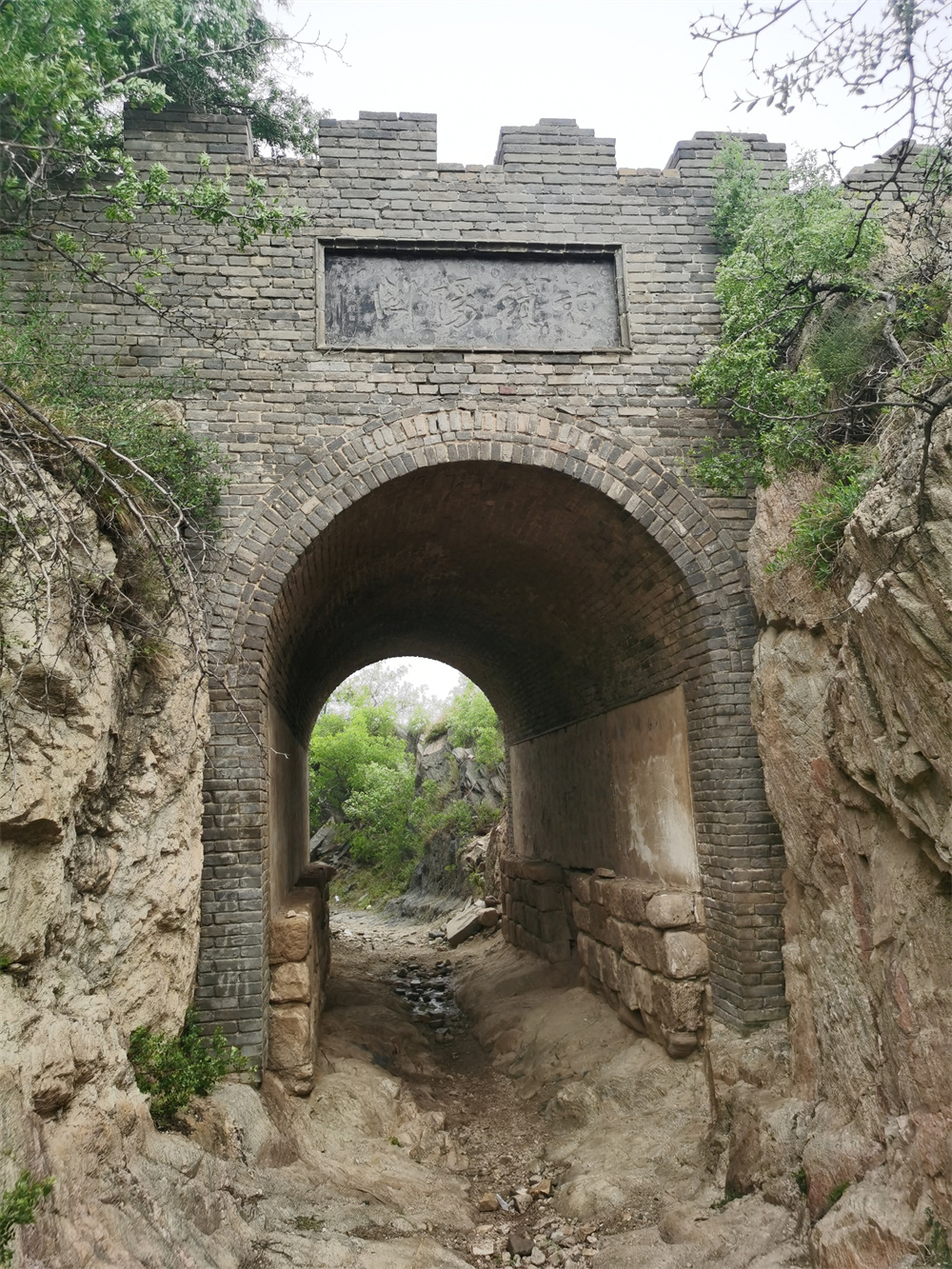
Yuncheng Yuban Ancient Salt Road.
The road’s historical importance is further underscored by its preservation status; it was designated a national key cultural relic protection unit in 2013. The remnants of the salt road, including the “Blue Stone Channel” (青石槽), reflect the skilled craftsmanship of the ancient builders and offer a glimpse into the past. Today, visitors can walk along sections of the road, surrounded by lush vegetation and the echoes of history, imagining the bustling activity of salt traders and their heavily laden carts.
In the modern era, the Yuncheng Yuban Ancient Salt Road stands not only as a symbol of the region’s historical significance but also as a testament to the resilience and adaptability of Yuncheng’s salt culture. With ongoing efforts to promote ecological tourism and cultural heritage, the ancient road has become a vibrant link between the past and present, inviting travelers to explore the legacy of salt and the stories of those who once traversed its path.
Main Highlights: What to See at Yuncheng Yuban Ancient Salt Road
The Yuncheng Yuban Ancient Salt Road, a remarkable historical route, invites travelers to explore its rich tapestry of culture and history. Here are the key highlights that make this destination truly unique:
-
A Journey Through Time
Dating back to the early Western Zhou Dynasty, the Yuban Ancient Salt Road is one of the oldest and longest-used roads in China. It served as a vital artery for salt transportation from the Yuncheng Salt Lake to the Central Plains and beyond. Walking along this ancient path, visitors can witness the deep wheel ruts carved into the stone by centuries of salt-laden carts, a testament to the arduous labor of salt workers from bygone eras. -
Breathtaking Scenery
The road meanders through the stunning landscape of the Zhongtiao Mountains, where lush greenery contrasts with the rugged terrain. The picturesque setting not only provides a visual feast but also allows travelers to connect with nature as they walk in the footsteps of history. The vibrant colors of the Yuncheng Salt Lake, especially during the summer months, enhance the overall experience, creating a living canvas that changes with the seasons. -
Cultural Significance
The Yuban Ancient Salt Road is steeped in legends and tales, including the famous story of “Bole Sees the Horse,” where the renowned horse expert Bole discovered exceptional horses along this route. This cultural narrative adds a layer of intrigue, making the journey not just about the landscape but also about the stories that have unfolded over millennia. -
Historic Relics
Along the route, visitors will encounter remnants of ancient infrastructure, such as the ruins of salt production sites and the “Ancient Lock Yang Pass,” which served as a strategic military checkpoint during the Warring States period. These sites offer a glimpse into the region’s historical significance, both as a center for salt production and as a strategic military location. -
Ecological Diversity
The Yuncheng Salt Lake ecosystem is home to a wide variety of flora and fauna, including migratory birds such as flamingos and swans. Nature enthusiasts will appreciate the opportunity to observe these beautiful creatures in their natural habitat, especially during their migration seasons. The region’s ecological restoration efforts have enhanced its natural beauty, making it a prime destination for eco-tourism. -
Culinary Delights
No visit to the Yuban Ancient Salt Road would be complete without sampling the local cuisine. The area is renowned for its unique salt-infused dishes, which reflect the deep-rooted salt culture of Yuncheng. Food lovers can indulge in a variety of traditional meals that showcase the significance of salt in local culinary practices. -
Educational Experiences
The Yuhuang Temple and the Hedong Salt Culture Museum provide informative insights into the historical and cultural aspects of salt production in the region. Engaging exhibits and guided tours offer visitors a chance to deepen their understanding of the ancient techniques used in salt harvesting, highlighting the craftsmanship that has been passed down through generations.
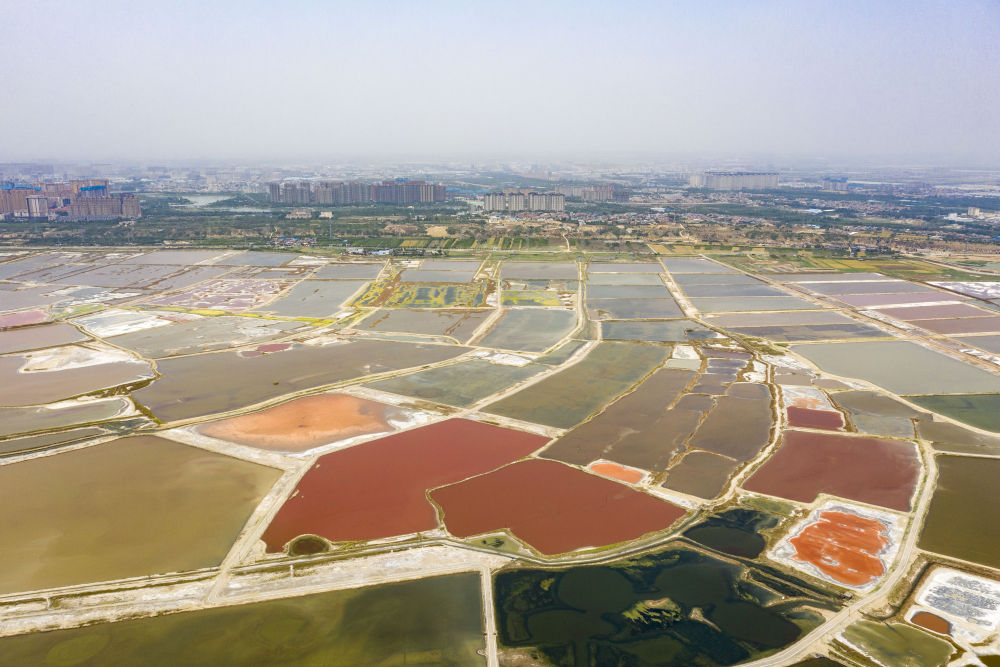
Yuncheng Yuban Ancient Salt Road.
Exploring the Yuncheng Yuban Ancient Salt Road is not just a journey through stunning landscapes; it’s an immersive experience into the heart of Chinese history and culture, where each step tells a story of resilience, innovation, and the enduring legacy of salt.
Planning Your Visit: A Practical Guide
Practical Guide to Yuncheng Yuban Ancient Salt Road
Exploring the Yuncheng Yuban Ancient Salt Road, a historical marvel in Shanxi Province, offers travelers a unique glimpse into the ancient salt trade that shaped regional economies and cultures. Here’s a comprehensive guide to help you navigate this fascinating destination.
Getting There
Location: The Yuban Ancient Salt Road is situated approximately 20 kilometers north of Pinglu County, at the foothills of the Zhongtiao Mountains.

Yuncheng Yuban Ancient Salt Road.
Transportation:
– By Car: Renting a car is one of the most convenient ways to reach the Salt Road. From Pinglu County, the journey takes around 35 minutes via scenic routes.
– Public Transport: While public transportation options may be limited, local buses can connect you to nearby towns. Be sure to check schedules in advance.
– Guided Tours: Consider joining a guided tour for an in-depth understanding of the history and significance of the salt road.
What to Expect
Historical Significance:
The Yuban Ancient Salt Road dates back to the early Western Zhou Dynasty and has been a crucial route for transporting salt from Yuncheng to central and northwestern China. The road features well-preserved pathways, ancient stone carvings, and remnants of historical salt trade activities.
Key Features:
– Scenic Views: The road winds through picturesque landscapes, with lush greenery on either side and the majestic Zhongtiao Mountains as a backdrop. Be prepared for stunning photo opportunities.
– Cultural Landmarks: Along the route, you’ll find significant sites such as the ancient “Gu Suo Yang Pass,” which served as a strategic military checkpoint, and the famous “Bole Cave,” where the legendary figure Bole is said to have discovered excellent horses.
Activities
Hiking and Exploration:
– The Yuban Ancient Salt Road is ideal for hiking enthusiasts. Trails vary in difficulty, allowing for leisurely walks or more challenging hikes. Ensure you wear appropriate footwear.
– Take time to explore the historical remnants along the path, including deep wheel ruts left by centuries of salt-carrying carts.
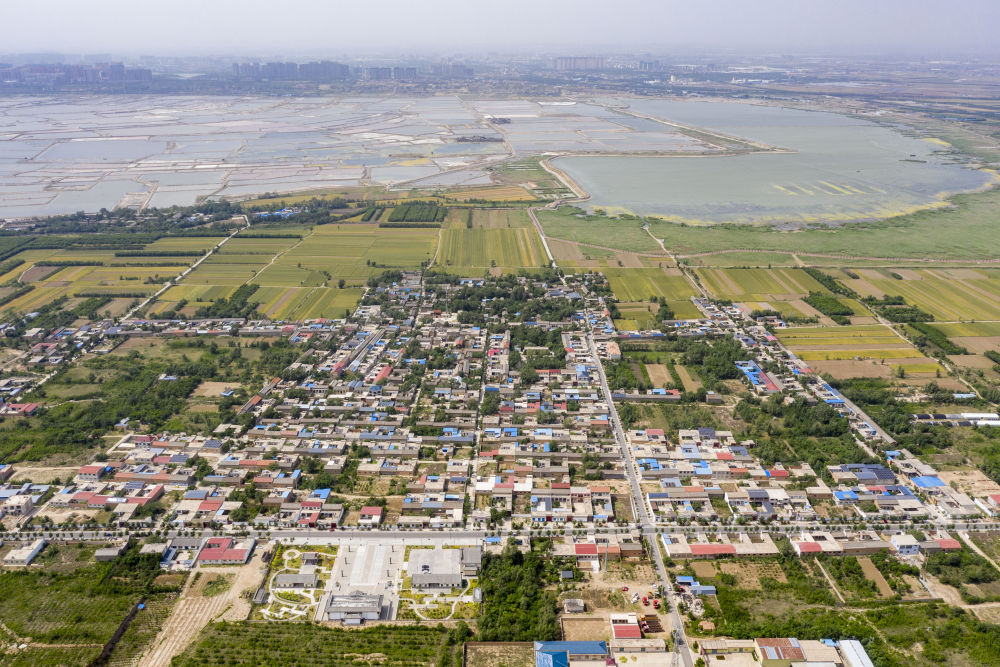
Yuncheng Yuban Ancient Salt Road.
Local Culture:
– Engage with local communities who preserve the traditions surrounding salt production. You may have the chance to witness traditional salt-making techniques.
– Participate in local festivals or events that celebrate the rich salt culture of Yuncheng. Keep an eye on community boards for announcements.
Practical Tips
- Best Time to Visit: The ideal time for exploration is during spring and autumn when temperatures are moderate and the scenery is vibrant. Summers can be hot, while winters may bring snow, creating a different but beautiful landscape.
- What to Bring: Pack essentials such as water, snacks, sunscreen, a hat, and a camera. If you plan to hike, consider bringing a small backpack for ease of movement.
- Respect the Environment: As you explore this ancient route, practice Leave No Trace principles. Preserve the natural beauty and historical integrity of the area.
Nearby Attractions
After exploring the Salt Road, don’t miss:
– Yuncheng Salt Lake: One of the largest salt lakes in the world, ideal for photography and bird watching.
– Hedong Salt Culture Museum: Learn about the history of salt production in the region and see artifacts related to the salt trade.
– Local Cuisine: Enjoy traditional dishes that highlight the region’s unique culinary heritage, especially dishes that incorporate local salt.
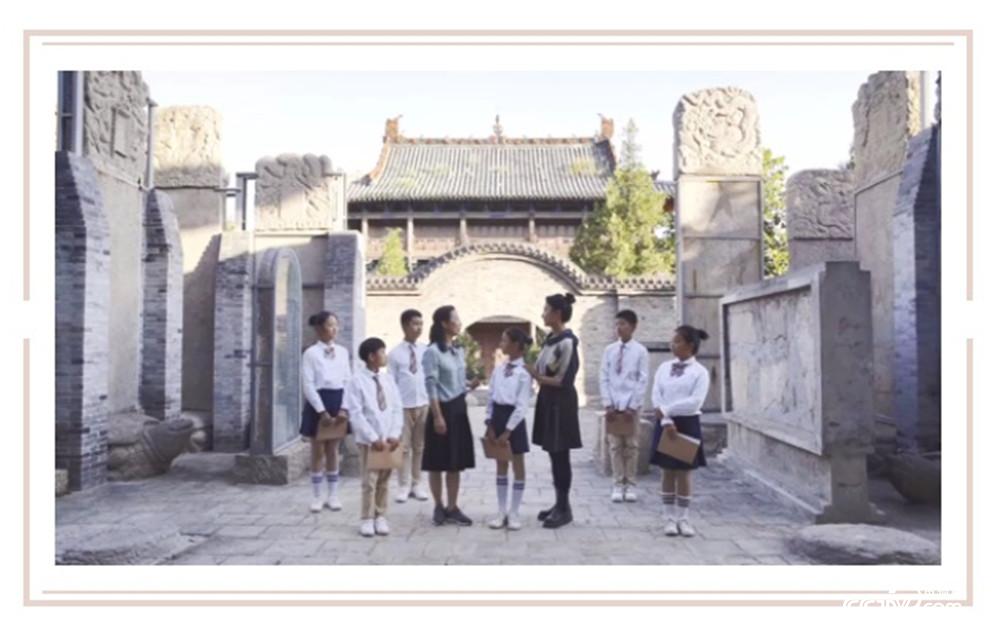
Yuncheng Yuban Ancient Salt Road.
Exploring the Yuncheng Yuban Ancient Salt Road is not just a journey through the past; it’s an opportunity to connect with the rich cultural tapestry of China. Whether you’re a history buff, a nature lover, or an adventurer, this ancient route promises an unforgettable experience.
Tickets, Hours, and Booking
Visiting the Yuncheng Yuban Ancient Salt Road is a fascinating journey through history, and planning your trip is essential to make the most of this unique cultural experience. Here’s everything you need to know about tickets and access to the site.
Ticket Information
- Admission Fees:
-
Entry to the Yuncheng Yuban Ancient Salt Road is free for all visitors. This allows everyone to explore the historical significance of the ancient salt route without any financial burden.
-
Guided Tours:
-
While general access is free, guided tours are available for a fee. These tours provide in-depth insights into the history of the salt road, its cultural significance, and the ancient techniques used for salt production. Prices for guided tours typically range from 50 to 120 CNY per person, depending on the duration and depth of the tour.
-
Opening Hours:
-
The Yuban Ancient Salt Road is open year-round, with guided tours generally available from 9:00 AM to 5:00 PM. It’s advisable to check for any seasonal changes or special events that may affect opening hours.
-
Location and Access:
-
The ancient salt road is located approximately 20 kilometers north of Pinglu County, nestled at the base of the beautiful Zhongtiao Mountain. Visitors can reach the site by car; a scenic drive along the northern shore of Yuncheng Salt Lake offers stunning views of the landscape.
-
Parking:
-
Ample parking is available near the entrance of the site, making it convenient for visitors traveling by car.
-
Best Time to Visit:
-
Although the site is open year-round, the best times to visit are during spring (April to June) and autumn (September to November) when the weather is mild and the scenery is particularly beautiful.
-
Additional Activities:
- Combine your visit to the salt road with a trip to the nearby Hedong Salt Culture Museum, which showcases the rich history of salt production in the region. Tickets for the museum are also free, but special exhibitions may require a small fee.
By planning your visit with this information in mind, you can enjoy a rich cultural experience while exploring the Yuncheng Yuban Ancient Salt Road and its historical significance. Enjoy your journey into the heart of salt production history!
How to Get There
Traveling to the Yuncheng Yuban Ancient Salt Road offers a unique opportunity to explore one of China’s historical treasures. The following guide provides essential information on how to reach and navigate this significant cultural landmark.
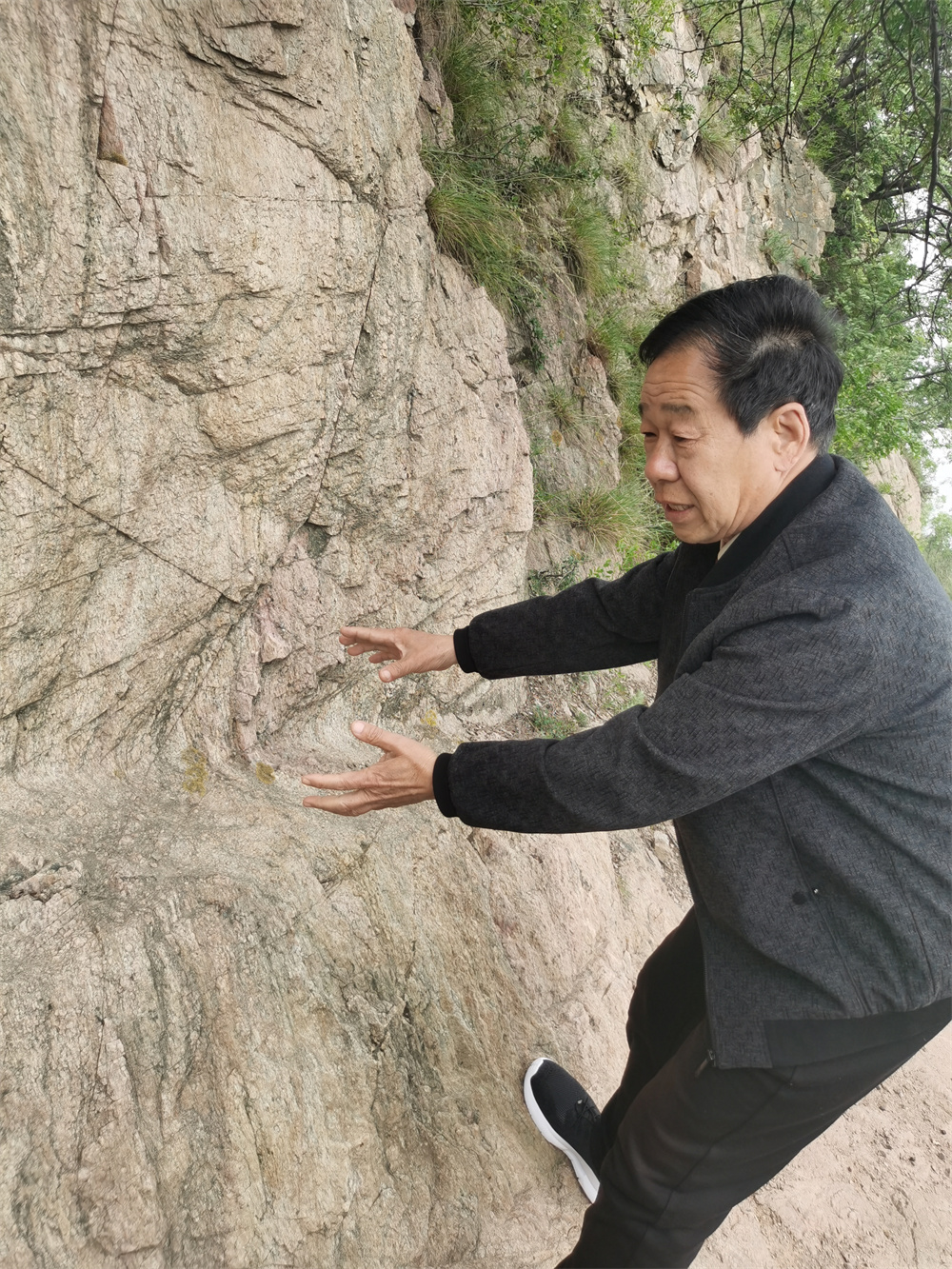
Yuncheng Yuban Ancient Salt Road.
Getting There
By Air
The nearest airport to the Yuncheng Yuban Ancient Salt Road is Yuncheng Guangong Airport (YCU), located approximately 20 kilometers from the city center. The airport offers domestic flights, primarily connecting to major cities like Beijing and Shanghai. From the airport, visitors can take a taxi or arrange for a private transfer to reach the ancient salt road.
By Train
Yuncheng is also accessible via the railway network. The Yuncheng Railway Station serves high-speed trains that connect the city to various destinations, including Xi’an and Taiyuan. Once you arrive at Yuncheng Railway Station, taxis are readily available to take you to the Yuban Ancient Salt Road, which is about 30 kilometers away.
By Bus
For those preferring road travel, long-distance buses operate from nearby cities to Yuncheng. Buses from Taiyuan, Xi’an, and Linfen frequently arrive at the Yuncheng Long-distance Bus Station. From there, visitors can take a local taxi or find public transport options to reach the ancient salt road.
Local Transportation
Taxis
Taxis are widely available throughout Yuncheng, making them a convenient option for getting to the Yuban Ancient Salt Road. Ensure to have the destination written in Chinese, as some drivers may not speak English. The fare from the city center to the ancient salt road is reasonable, typically ranging from 50 to 80 RMB, depending on traffic.
Private Car Rentals
For those who prefer flexibility, renting a car is a great option. Several rental agencies operate in Yuncheng, and renting a vehicle will allow you to explore not only the ancient salt road but also the surrounding areas at your own pace. Be mindful that driving in rural areas may require familiarity with local traffic rules and road conditions.
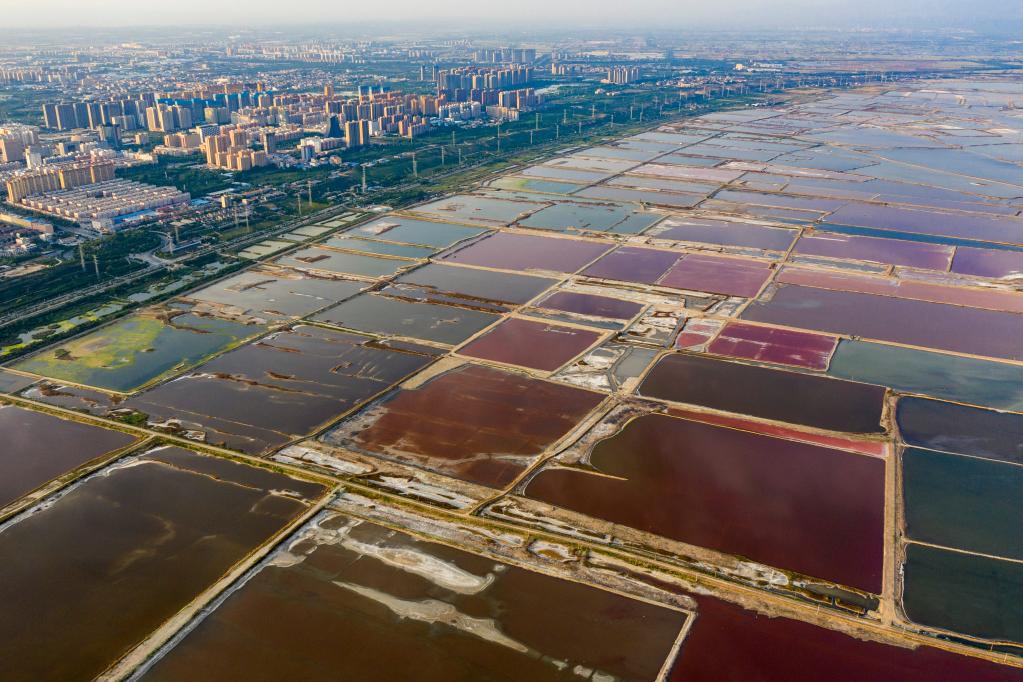
Yuncheng Yuban Ancient Salt Road.
Guided Tours
Many visitors opt for guided tours that include transportation. These tours often provide a comprehensive experience, including historical insights and visits to nearby attractions such as the Yuncheng Salt Lake. Local tour operators can be found online or through hotel concierges in Yuncheng.
Accessibility and Conditions
The Yuban Ancient Salt Road is located in a mountainous region, and the pathways can be rugged. Comfortable walking shoes are recommended, as visitors may need to navigate uneven terrain. Certain sections may be steep, so those with mobility concerns should prepare accordingly.
In summary, reaching the Yuncheng Yuban Ancient Salt Road is accessible through various transportation methods. Whether by air, train, or bus, visitors can easily arrive at this historical site and enjoy the rich cultural heritage it has to offer.
Local Cuisine and Accommodation
Exploring the Yuncheng Yuban Ancient Salt Road not only immerses visitors in rich history but also offers delightful culinary experiences and comfortable accommodations, ensuring a well-rounded journey through this culturally significant region.
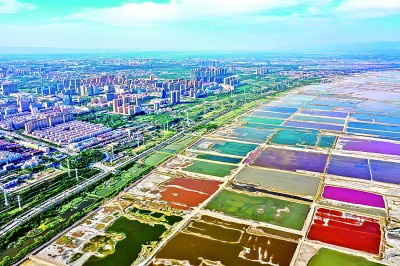
Yuncheng Yuban Ancient Salt Road.
Culinary Delights
Yuncheng is renowned for its distinctive local cuisine, which reflects the region’s agricultural bounty and historical salt trade. When visiting, be sure to sample the following dishes:
-
Yuncheng Salted Duck (运城咸鸭): A must-try, this dish showcases the unique flavor imparted by the local salt, which has been harvested for thousands of years. The duck is marinated and then cooked to perfection, offering a savory and succulent taste.
-
Fried Noodles with Salted Vegetables (咸菜炒面): This hearty dish combines local noodles stir-fried with seasonal vegetables and the region’s famous pickled salted vegetables, providing a comforting and flavorful meal.
-
Dumplings (饺子): Yuncheng is famous for its dumplings, especially those filled with local ingredients such as lamb or various vegetables. Make sure to visit a local eatery to enjoy these steamed or boiled delights.
-
Sweet and Sour Fish (糖醋鱼): Utilizing the region’s freshwater fish, this dish features a balance of sweet and tangy flavors, showcasing the culinary diversity found in Yuncheng.
For a more immersive experience, consider dining at Fenghuang Restaurant (凤凰餐厅), which not only serves traditional dishes but also provides a serene view of the salt lake, enhancing your dining experience with its picturesque surroundings.
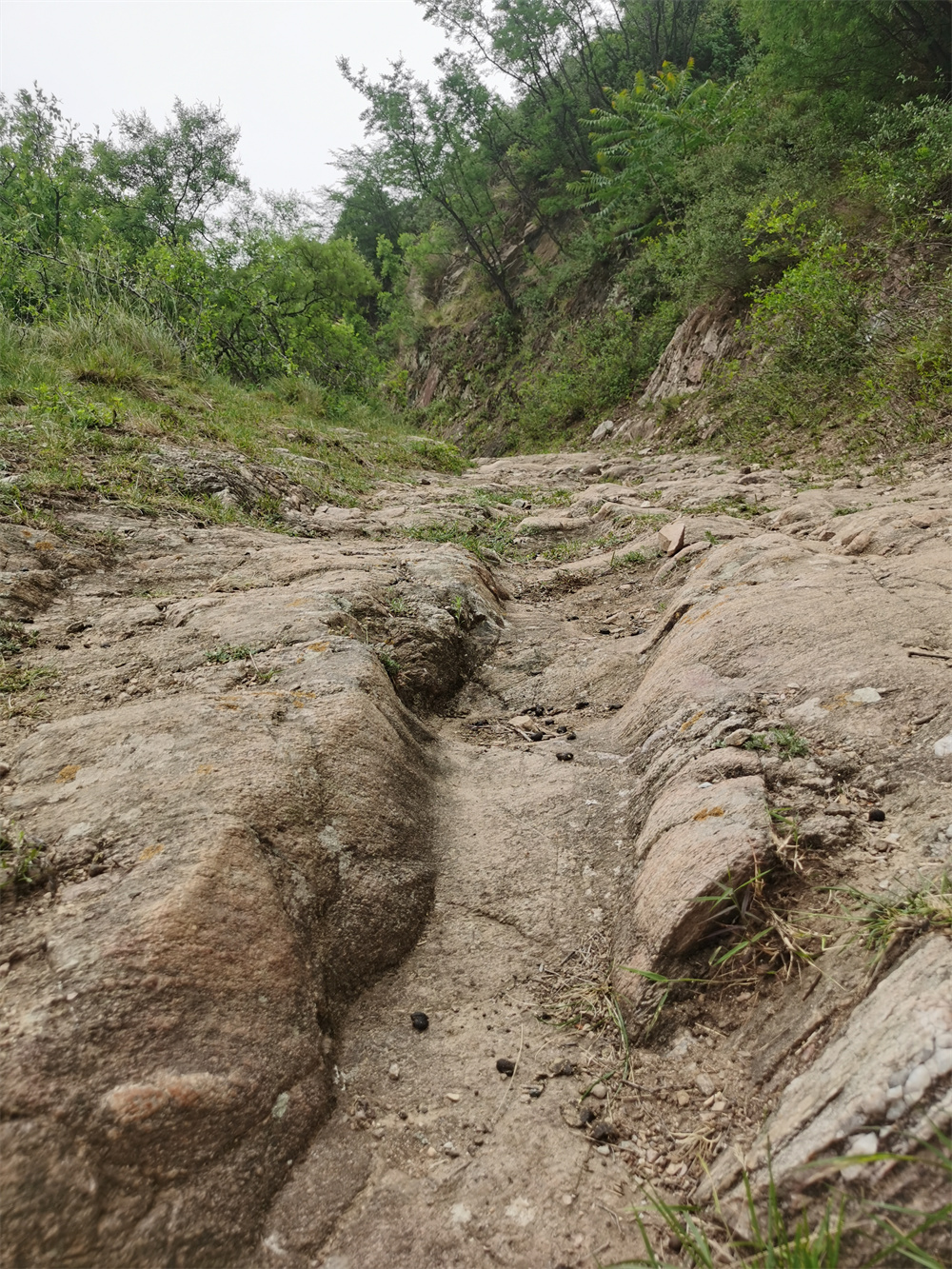
Yuncheng Yuban Ancient Salt Road.
Where to Stay
Accommodations in Yuncheng cater to a range of preferences and budgets, making it easier for travelers to find suitable lodging while exploring the ancient salt road:
-
Yuncheng Grand Hotel (运城大酒店): A luxurious option that offers modern amenities, spacious rooms, and excellent service. Located near the city center, it provides easy access to major attractions, including the Yuncheng Salt Lake.
-
Salt Lake Eco-Resort (盐湖生态度假村): This resort offers a unique experience set against the stunning backdrop of the salt lake. Guests can enjoy various recreational activities, including bird watching and hiking, along with comfortable accommodations.
-
Pinglu County Guesthouse (平陆县招待所): For budget travelers, this guesthouse provides basic yet comfortable lodging options. It’s conveniently located near the Yuban Ancient Salt Road, making it a great base for exploration.
-
Homestays in Yucheng Village (运城乡村民宿): Experience local hospitality by staying in one of the charming homestays in nearby villages. Here, you can enjoy authentic home-cooked meals and immerse yourself in the daily life of the local community.
In summary, Yuncheng offers a delightful blend of historical exploration, culinary experiences, and comfortable accommodations, making it an ideal destination for travelers seeking to delve deeper into the ancient salt road’s rich heritage.
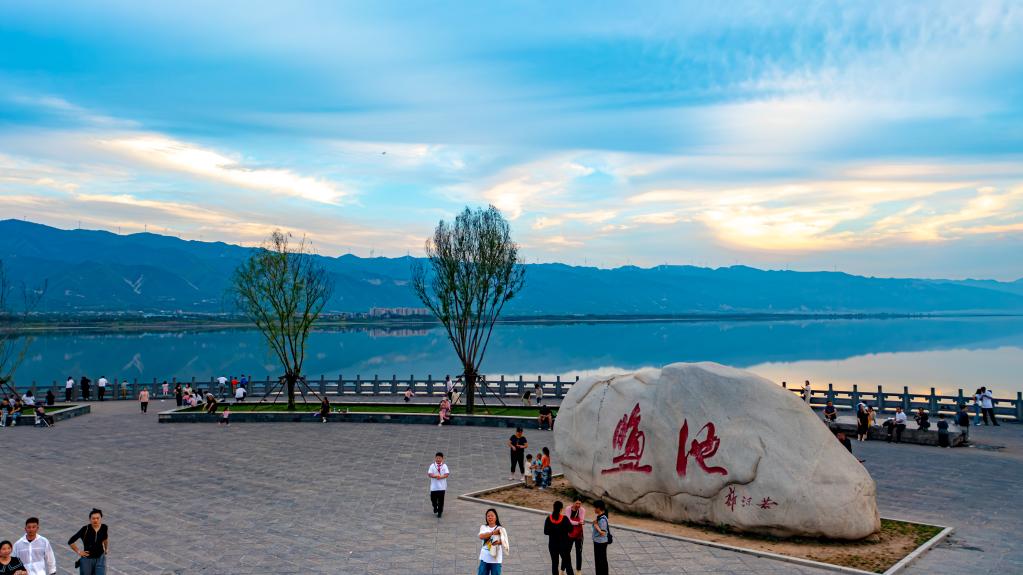
Yuncheng Yuban Ancient Salt Road.
Frequently Asked Questions
Frequently Asked Questions about Yuncheng Yuban Ancient Salt Road
-
What is the Yuncheng Yuban Ancient Salt Road?
The Yuncheng Yuban Ancient Salt Road is a historic trade route that dates back to the early Western Zhou Dynasty, serving as a critical pathway for transporting salt from the Yuncheng Salt Lake to various regions in China. It showcases ancient engineering and the cultural heritage of salt production in the region. -
How long is the Yuban Ancient Salt Road?
The ancient salt road extends approximately 8 kilometers along the northern foothills of the Zhongtiao Mountain. It is characterized by its rugged terrain and historical significance, featuring deep ruts left by carts and animals that once traversed the path. -
What can visitors expect to see along the salt road?
Visitors will encounter stunning natural scenery, historical relics, and preserved sections of the ancient road. Key features include the remnants of salt production sites, ancient stone carvings, and breathtaking views of the surrounding landscape that reflect the region’s rich history. -
How can I get to the Yuban Ancient Salt Road?
The salt road is located approximately 20 kilometers north of Pinglu County in Yuncheng, Shanxi Province. It is accessible via car, and the drive from downtown Yuncheng takes about 35 minutes. Public transport options may also be available, but it is advisable to check local schedules. -
Is there an entrance fee to visit the Yuban Ancient Salt Road?
Generally, there is no entrance fee to walk along the Yuban Ancient Salt Road, as it is part of the natural landscape. However, certain guided tours or nearby attractions may have specific fees, so it’s advisable to check in advance. -
What is the best time of year to visit the Yuban Ancient Salt Road?
The ideal time to visit is during spring and autumn when the weather is mild and the scenery is particularly beautiful. Summer can be hot, while winter may bring snow, which can make the path slippery and challenging to navigate. -
Are there facilities for visitors along the salt road?
While the Yuban Ancient Salt Road itself is a natural site without extensive facilities, there are nearby towns and visitor centers where amenities such as restrooms, food, and accommodations can be found. It is recommended to bring water and snacks for your journey. -
Can I hike the entire length of the Yuban Ancient Salt Road?
Yes, visitors can hike the length of the road, but it’s essential to be prepared for rugged terrain. Proper footwear, a reasonable level of fitness, and awareness of weather conditions are recommended to ensure a safe and enjoyable experience.
Final Thoughts on Your Trip
Reflecting on the Yuncheng Yuban Ancient Salt Road, it is clear that this historic route is much more than just a pathway; it is a living testament to the ingenuity and resilience of ancient civilizations. Spanning over 4,600 years of salt production history, the ancient salt road showcases the vital role salt played in the development of trade, culture, and society in China. As you traverse this remarkable landscape, you are not merely walking through a scenic area; you are stepping into the footprints of countless salt workers, merchants, and historians who have shaped the very identity of Yuncheng.
Today, as efforts continue to preserve and revitalize the ecological and cultural heritage of the salt lake and its surrounding areas, the Yuban Ancient Salt Road stands as a beacon of hope for sustainable tourism and cultural appreciation. Visitors can immerse themselves in the vibrant history of salt production while enjoying the breathtaking views of the colorful salt lakes and the majestic mountains. The blend of natural beauty with rich history invites travelers to connect with a past that remains relevant and inspiring.
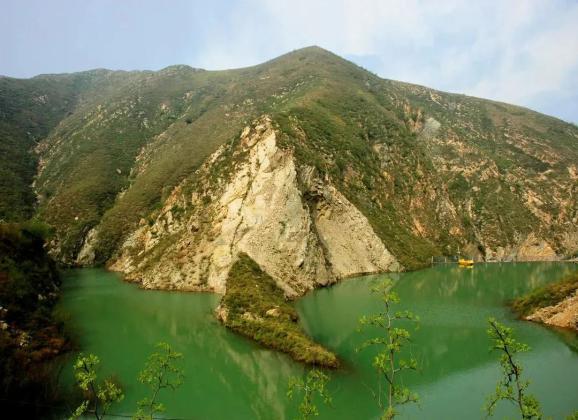
Yuncheng Yuban Ancient Salt Road.
In exploring the Yuncheng Yuban Ancient Salt Road, you embrace a journey through time, culture, and nature—a reminder of our shared human experience and the enduring legacy of those who came before us. So, pack your bags, and set forth on this unforgettable adventure, where every step tells a story and every sight inspires awe.
